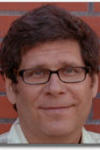Mark S. Seidenberg, Ph.D.
Professor, Department of Psychology
Neuroscience Training Program, Wisconsin Institutes for Medical Research II
Research Scientist, Haskins Laboratories
Research:
My research is concerned with basic questions about the nature of language and how it is acquired, used, and represented in the brain. It has two complementary parts. One part concerns reading, a particular use of language. My main interest is in how reading skill is acquired by children, and the causes of dyslexia (reading impairments). I am also committed to exploring how the science of reading can contribute to improved educational performance; as part of that effort I am studying the persistently low reading achievement of minority children, many of whom are from low-income backgrounds. In practice, my reading research involves behavioral and neuroimaging studies of children and adults, and the development of computational (“neural network”) models of normal and disordered performance. The second part of my research concerns spoken language, particularly how it is acquired and the mechanisms underlying comprehension. I use the same theoretical principles and methods in studying both reading and language. In both cases we want to understand how the skill is acquired and its brain bases, using computational models as the interface between the two.
Publications:
Please see PubMed for more publications.
Graves WW, Binder JR, Seidenberg MS. 2013. Noun-noun combination: meaningfulness ratings and lexical statistics for 2,160 word pairs. Behav Res Methods. 45(2):463-9.
Pugh KR, Landi N, Preston JL, Mencl WE, Austin AC, Sibley D, Fulbright RK, Seidenberg MS, Grigorenko EL, Constable RT, Molfese P, Frost SJ. 2013. The relationship between phonological and auditory processing and brain organization in beginning readers. 125(2):173-83.
Mano QR, Humphries C, Desai RH, Seidenberg MS, Osmon DC, Stengel BC, Binder JR. 2013. The role of left occipitotemporal cortex in reading: reconciling stimulus, task, and lexicality effects. Cereb Cortex. 23(4):988-1001.
Seidenberg, MS. 2012. Writing systems: not optimal, but good enough. Behav Brain Sci. 35(5):305-7.
Mirković J, Seidenberg MS, Joanisse MF. 2011. Rules versus statistics: insights from a highly inflected language. Cogn Sci. 35(4):638-81.
Seidenberg MS. 2011. What causes dyslexia?: comment on Goswami. Trends Cogn Sci. 15(1):2.
